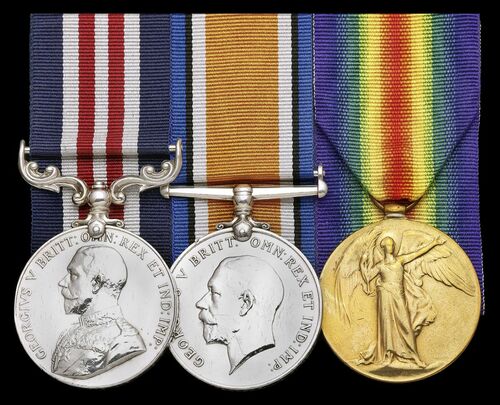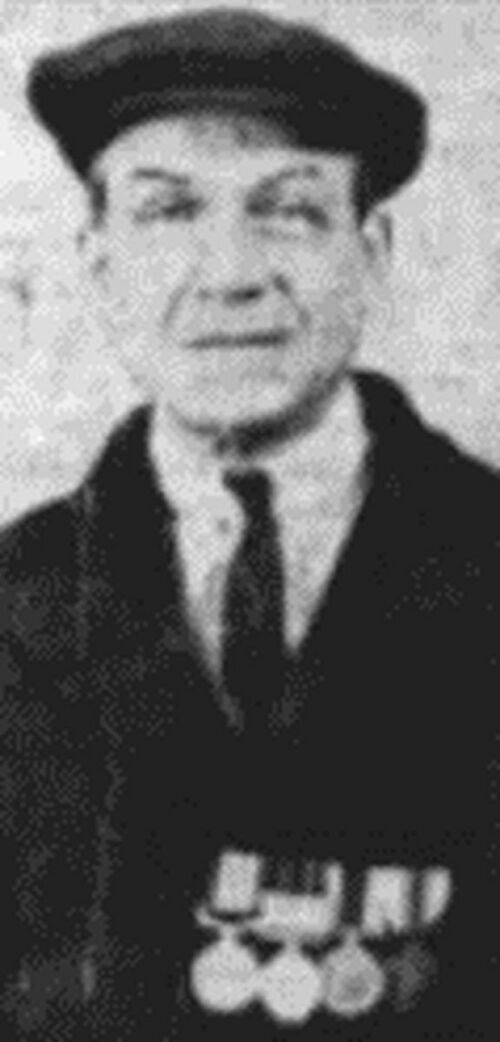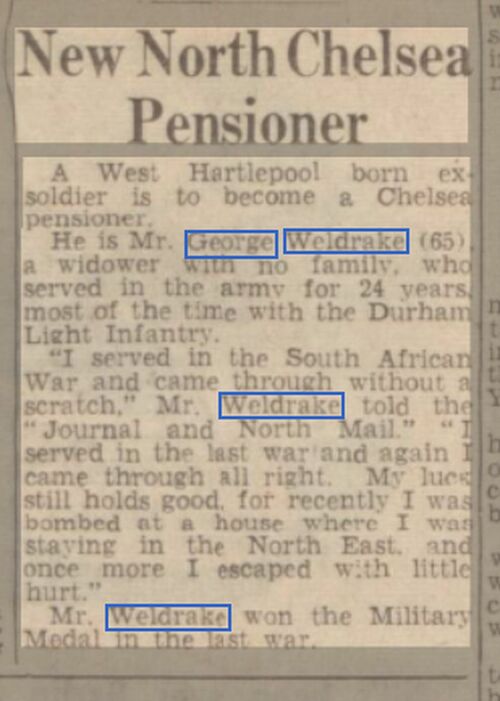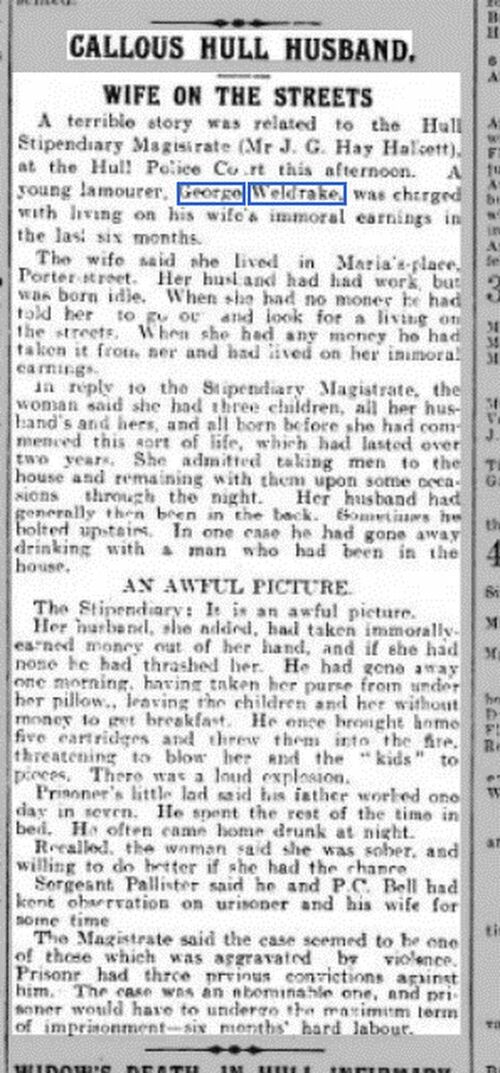Auction: 23003 - Orders, Decorations and Medals
Lot: 297
'Callous Hull husband - wife on the Streets
A young labourer, George Weldrake, was charged with living off the immoral earnings of his wife and sentenced to six months hard labour. The wife said she lived in Maria's Place, Porter Street, Hull. Her husband had work but was bone idle. She admitted taking men to the house and remaining with them, on some occasions through the night. Her husband had generally been in the back, sometimes he bolted upstairs, in one case he had gone away drinking with a man who had been in the house!
Prisoner's little lad said his father worked one day in seven. He spent the rest of the time in bed, and often came home drunk at night.'
The Hull Daily Mail, 10 February 1914, refers
The Great War M.M. group of three awarded to Private G. Weldrake, 1st Battalion, Queen's Own Royal West Kent Regiment, who won his M.M. for a daring daylight patrol during which he killed several of the enemy machine gunners himself allowing his patrol to seize the position and the German machine guns
Military Medal, G.V.R. (20293 Pte. G. Weldrake. 1/R. W. Kent. R.); British War and Victory Medals (201212 Pte. G. Weldrake. R. W. Kent R.), very fine (3)
M.M. London Gazette 24 January 1919. A citation is extracted from the Battalion History:
'Volunteered for a daylight patrol on the 24th August 1918 after the capture of Irles. He proceeded about 400 yards in advance when he saw enemy emerging from a shell hole. He fired on these in spite of the fact that other enemy threw hand grenades at him. Four machine guns then opened on him at short range, but he covered the withdrawal of his spare scout. He then again went forward, firing from cover, and was instrumental in forcing the enemy to withdraw. He killed several of the enemy, and by his accurate shooting caused the machine guns to cease fire, and the remainder of his section were, by his action, enabled to go forward and seize the position and machine guns.'
The patrol is further recounted:
'At dawn on 24 August the Battalion was ordered to prepare the position for defence in order to give the right flank attack an opportunity to come up into the general line. This work was set in hand and whilst it was being carried out a large number of the enemy were seen assembling behind their lines to the East. As the advance developed the enemy were seen to come out from their underground shelters in the village and form up in column of route. The column being proceeded by men carrying white flags. Strong patrols were thereupon sent forward from the Battalion and these patrols brought back 13 prisoners from various dug outs and also some machine guns and trench mortars. One patrol brought in 4 prisoners who had remained with a battery of 4.2 in guns which the enemy had not been able to remove. The total captures by the Battalion were one 5.9 in gun, the four 4.2 in guns, 8 trench mortars, and 14 machine guns.'
George Weldrake was born in West Hartlepool in 1876. In 1889, aged 13, he was in court for stealing and sent to an industrial school. He joined the Durham Light Infantry in 1893 and lied that he had no previous convictions. In 1895 he was court martialled for stealing from a colleague. He served in India and South Africa (Queen's Medal & 3 clasps) before leaving the Army in 1902 and marrying Annie Shaw.
1914 saw Weldrake jailed for six months with hard labour for living off his wife's immoral earnings. His son said his father worked one day in seven and was often drunk. That same year Annie was convicted of assault. She brought one man home, asked him for money for fried potatoes for the children, went out to get them and came back with another man (there is no mention in court whether the children got their food!). When the first man objected she thence hit him in the face with a big iron key. The couple were well-known to the police who had been observing the house for some time. Annie ended up in Nottingham where she became known for stealing from local shops.
Weldrake joined the Reserve in 1911 was called up upon the outbreak of the Great War and stated he was not married, had not been imprisoned and had never served in the Army. By January 1915 he had been promoted to Corporal before going absent without leave in March and deserting in July.
That same year he joined the Royal West Kent's under the alias 'George Wilson' (No. 201212); by August the Army had worked out he was actually George Weldrake and he was given 14 days detention, lost 12 days' pay and told he would serve what he signed up for. He lost more pay in 1916 for bad behaviour.
In 1918 he was jailed for three months by the civil authorities and in April 1919 he was discharged saying he wanted to join the Royal Navy. He actually joined the Royal Marines Labour Corps until that unit was disbanded as surplus to requirements in November 1919. In 1920 he joined the Reserve, losing three years from his age and again saying he wasn't married.
Quoted in a local paper in 1941 as a widower with no family and was going to become a Chelsea Pensioner. There are numerous newspaper reports about Weldrake and his numerous criminal convictions; sold together with copied research.
Subject to 20% VAT on Buyer’s Premium. For more information please view Terms and Conditions for Buyers.
Sold for
£700
Starting price
£400











